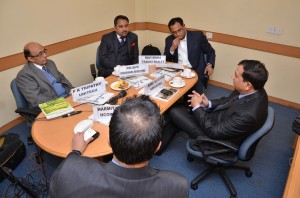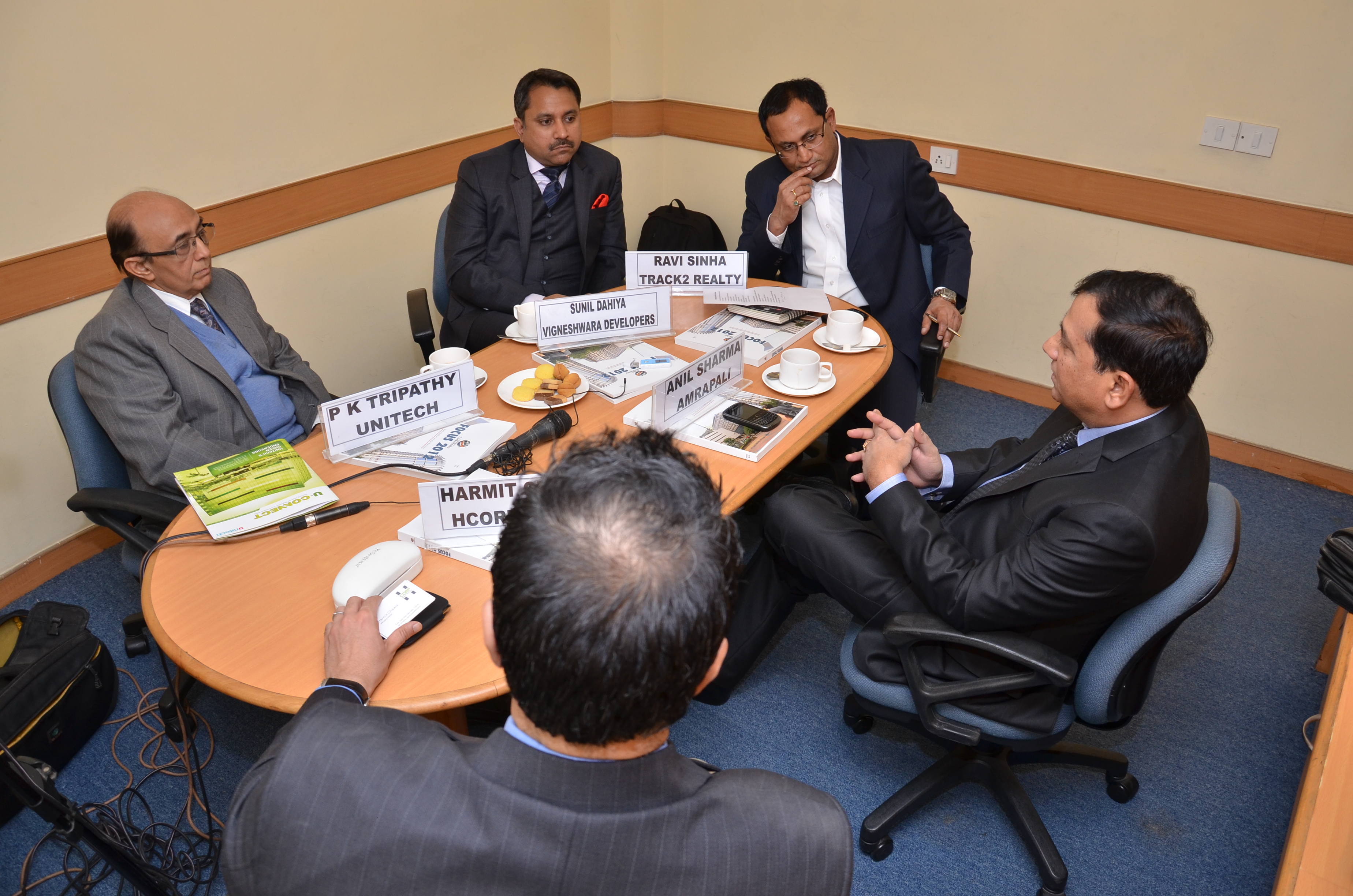Track2Realty Exclusive:
 Panelists—Dr Anil Sharma, CMD, Amrapali Group
Panelists—Dr Anil Sharma, CMD, Amrapali Group
Sunil Dahiya—Sr Vice President, NAREDCO & MD Vigneshwara Developers
Harmit Chawla—MD, HCorp Realty
PK Tripathi—President, Unitech
Moderator—Ravi Sinha, CEO & Managing Editor, Track2Realty
Ravi Sinha: I have a question here, and I will be very frank with Mr Tripathi. Any journalist who writes on real estate finds it very amusing that the sector has always tried to put the ball in the government’s court. Since you have been part of the government, how far will you agree to this?
PK Tripathi: I would say that the government should get out of it. Just like licensing in industries were taken out, the same way you have to adhere to a master planning, where you have an overall plan of the state on different cities and you announce it that this is the land and now you can play with it. you don’t even have to register. Whoever gets it can say these are the lands, and these are the roads and this is what you have to leave and the rest is to let the people play. The supply will be so much everywhere that it will regulate by itself.
The moment you have licensing, you are regulating the supply. The moment you are regulating the supply, that means you are controlling everything. What should happen is that infrastructure has to come first and real estate later. Maybe infrastructure and real estate companies can combine here to say that will be done by us. We don’t need any government regulatory authority to tell us what to do.
Sunil Dahiya: If I go by the precedence, India as a country has seen more development in the major cities in the unregulated settlement, in these unauthorised colonies. There may be haphazardness in the design factor but no house is without basic access of electricity or sewer. So, the growth has taken place more in an unregulated format than in the regulated format.
Ravi Sinha: You say developers should be left to do the business. Do they have the resources? 2012 has also been a year where most of the companies overleveraged their balance sheets.
PK Tripathi: See, it is how you look at it. Since 2008 there has been no money available from the bank and obviously interest rates went up and costs went up. So, when there was totally no money available from anywhere and no system by which you can raise money and the government and the RBI put the restrictions on every fund raising.
So, they should allow the banks that are a commercial entity rather than regulating from the RBI point of view. They themselves will decide whether they should give loan or not.
Sunil Dahiya: I think largely what we need to do is in 2013, we need to be courageous, as the stakeholders. NAREDCO and CREDAI should become stronger in terms of cohesion, not in terms of bodies. We have to have more members talking about creating an ecosystem which gives us money, administration, and delivery of product.
These three things are what we need to create in our ecosystem. Can we create a financial ecosystem jointly and go to the government with a solution that let’s have this ecosystem in place? It can be QIP, it can be ECB, anything but an ecosystem should exist so we should know a way to raise the money from.
…to be continued





